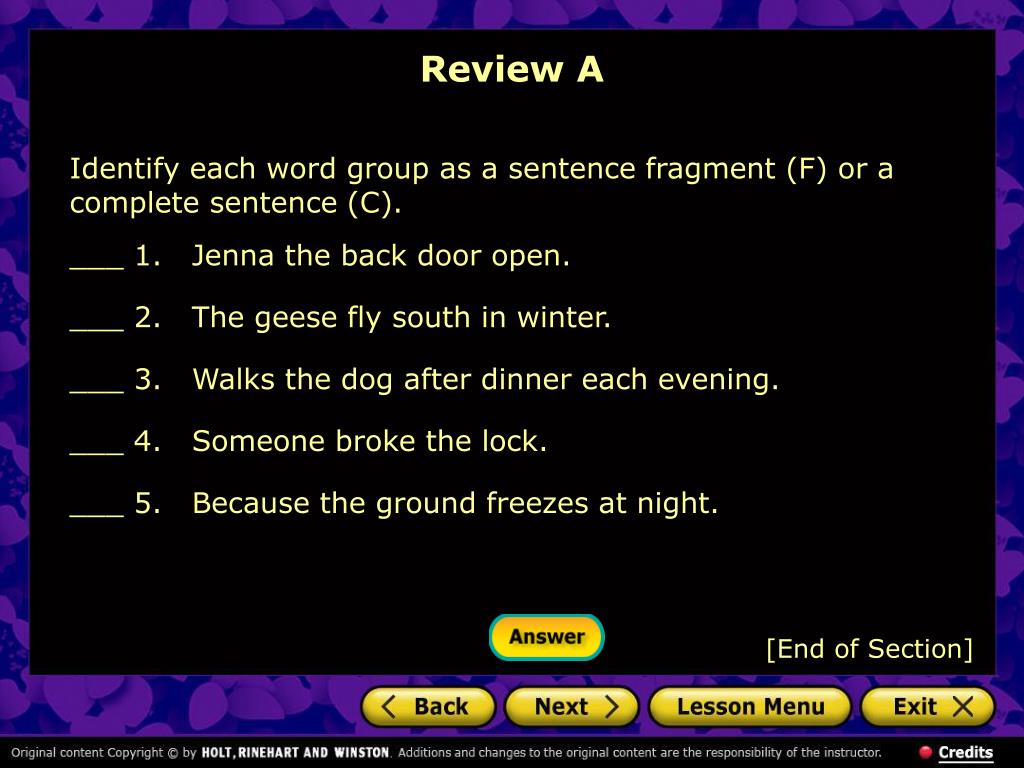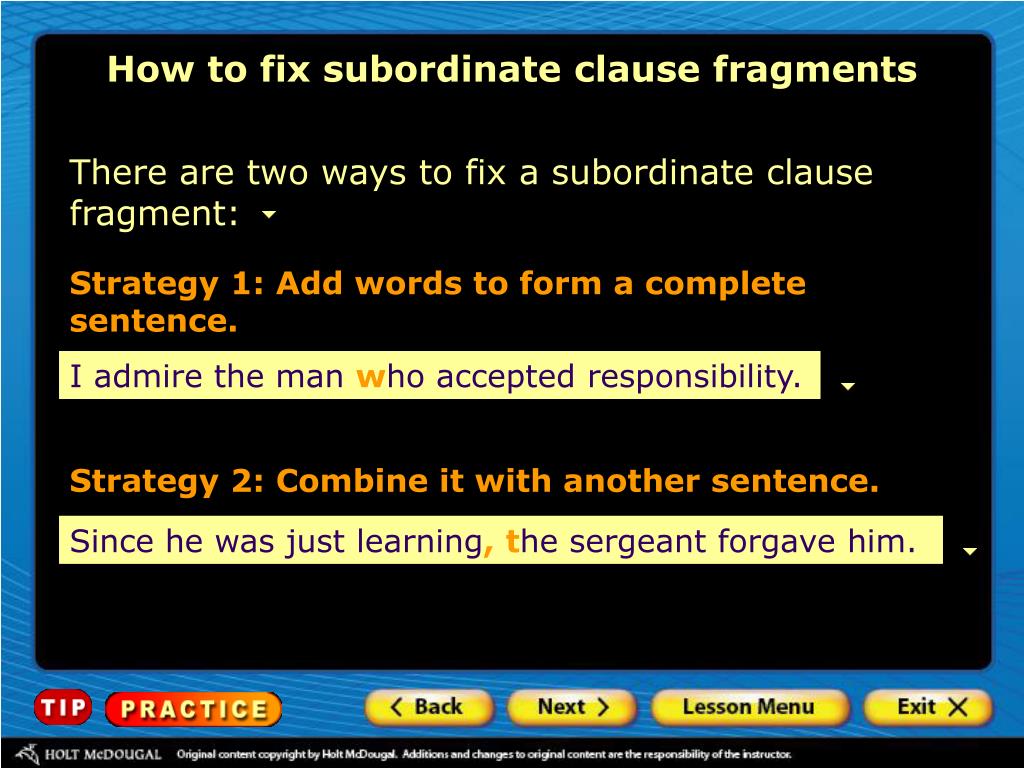
Example: “Lisa passed the test because she studied hard.”Ī: Sentence fragments can happen for many different reasons.

The error can be corrected by adding an independent clause. Example: “Because she studied hard.” In this case, the fragment doesn’t express a complete thought due to the subordinating conjunction making the sentence a dependent clause. There are several reasons a group of words may not express a complete thought including participle phrases, subordinating conjunctions and phrases that begin with an infinitive.

A group of words can have a subject and a verb but still fail to be a sentence because it fails to express a complete thought. Example: “The horse jumped over the fence.” Example: “Over the fence.” To fix the incomplete sentence add a subject and verb. When both subject and verb are missing the reader doesn’t know who did what. Example: “One of the greatest challenges in golf is hitting a hole-in-one.” The fragment can be corrected by adding a verb. Example: “One of the greatest challenges in golf.” There is no verb telling us what the challenge is. When there is no verb in the sentence the reader has no idea what is happening. The fragment can be made complete by adding a subject. Example: “Swam across the pool.” We don’t know who or what swam across the pool as there is no subject to tell us. When a group of words has no subject it is a fragment. Q: What are the four types of sentence fragments?Ī: Sentence fragments occur due to one of four basic reasons: A group of words missing one or more of these things is a sentence fragment and cannot stand on its own as a sentence.

To be a complete sentence a group of words requires 3 things: a subject (person or thing performing the action), a verb (the action the subject performs) and it must express a complete thought. To understand what a fragment is you need to know what constitutes a complete sentence. FAQ About Sentence Fragments and Fragments CheckerĪ: Sentence fragments are incomplete sentences.


 0 kommentar(er)
0 kommentar(er)
